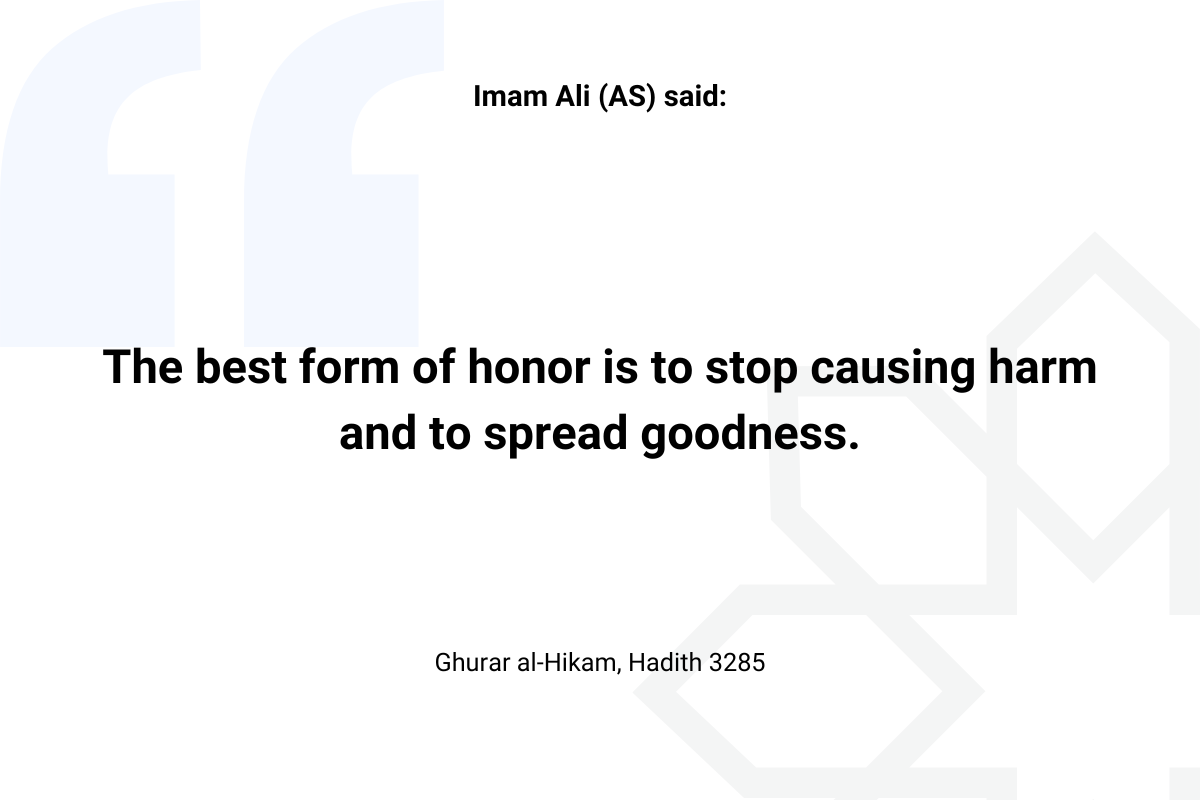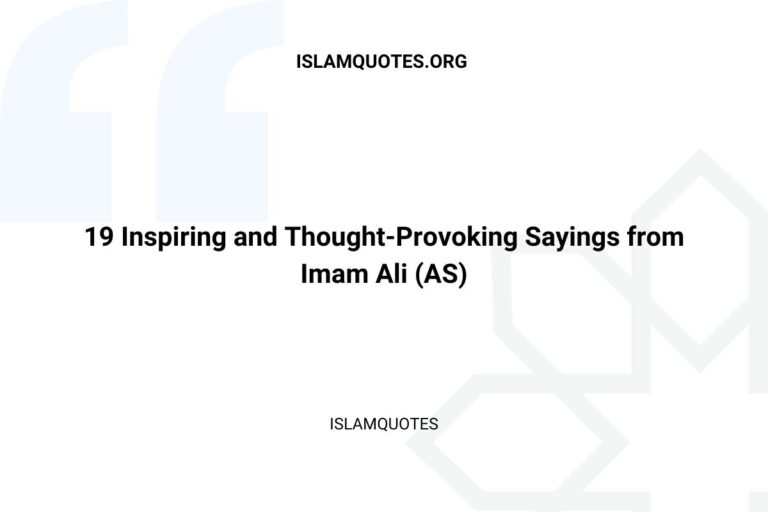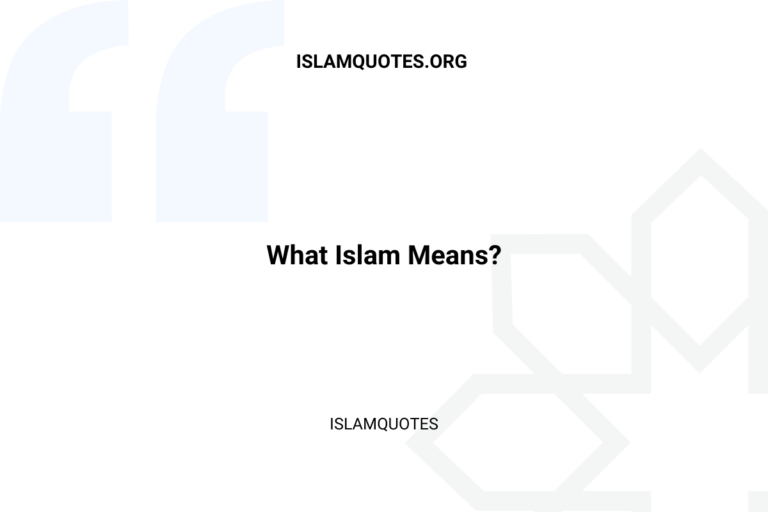Quote by Imam Ali (AS):
“The best form of honor is to stop causing harm and to spread goodness.”
– Ghurar al-Hikam, Hadith 3285
Understanding the Essence of True Honor: An Interpretation of Imam Ali’s Hadith
Imam Ali’s profound words encapsulate a timeless principle of Islamic ethics: the essence of true honor lies in alleviating the suffering of others and spreading kindness. This hadith, found in the collection of Ghurar al-Hikam, offers a deep insight into the moral fabric that should govern human interactions. In this article, we delve into the interpretation of this hadith and explore its relevance in contemporary society.
The Concept of Honor in Islam
In Islamic teachings, honor (sharaf) is not merely a superficial quality related to social status or reputation. Rather, it is deeply intertwined with moral virtues and righteous conduct. Imam Ali’s quote, “The best of honor is to relieve pain and extend kindness,” emphasizes that true honor is achieved through compassionate actions and benevolence.
Alleviating Pain: A Noble Pursuit
One of the key components of this hadith is the notion of relieving pain. In Islam, alleviating the suffering of others is considered a highly virtuous act. This principle is reflected in numerous other Islamic quotations and teachings. By helping those in distress, whether through physical assistance, emotional support, or financial aid, a person not only earns honor but also fulfills a critical aspect of Islamic duty.
Scientific Insights on Alleviating Pain
Modern science supports the benefits of alleviating others’ pain. Studies show that acts of kindness and empathy can significantly improve mental health, reduce stress, and foster a sense of community. These scientific findings align with the Islamic view that relieving pain is not just morally rewarding but also beneficial for the overall well-being of individuals and society.
Extending Kindness: The Path to True Honor
The second element of Imam Ali’s hadith focuses on the importance of extending kindness. Kindness in Islam is a comprehensive term that includes acts of charity, gentle speech, forgiveness, and general goodwill towards others. Extending kindness creates a ripple effect that can transform communities and build a more compassionate world.
The Power of Kindness in Building Community
Kindness has the power to bridge gaps between individuals and communities. It fosters mutual respect, understanding, and cooperation. Islamic teachings consistently encourage Muslims to be kind and just, emphasizing that these qualities are essential for creating a harmonious society.
Incorporating the Teachings into Daily Life
How can one integrate the profound teachings of this hadith into everyday life? Here are practical steps to embody the principles of relieving pain and extending kindness:
Relieving Pain in Practical Ways
- Volunteer Work: Engage in volunteer activities that help the less fortunate, such as working at shelters or food banks.
- Emotional Support: Offer a listening ear to friends and family members going through tough times.
- Financial Assistance: Provide financial help to those in need, either through direct aid or by supporting charitable organizations.
Extending Kindness Daily
- Small Acts of Kindness: Simple gestures like holding the door open, complimenting someone, or offering a smile can make a significant difference.
- Forgiveness: Practice forgiveness to resolve conflicts and promote peace.
- Community Involvement: Participate in community events and initiatives that promote unity and goodwill.
Conclusion
Imam Ali’s hadith, “The best of honor is to relieve pain and extend kindness,” encapsulates a core principle of Islamic ethics that remains profoundly relevant. By embracing these teachings, individuals can contribute to a more compassionate and honorable society. This hadith serves as a timeless reminder that true honor lies not in titles or accolades but in the selfless acts of kindness and compassion towards others.
For more inspiring Islamic quotes and hadiths, visit Islam Quotes.








